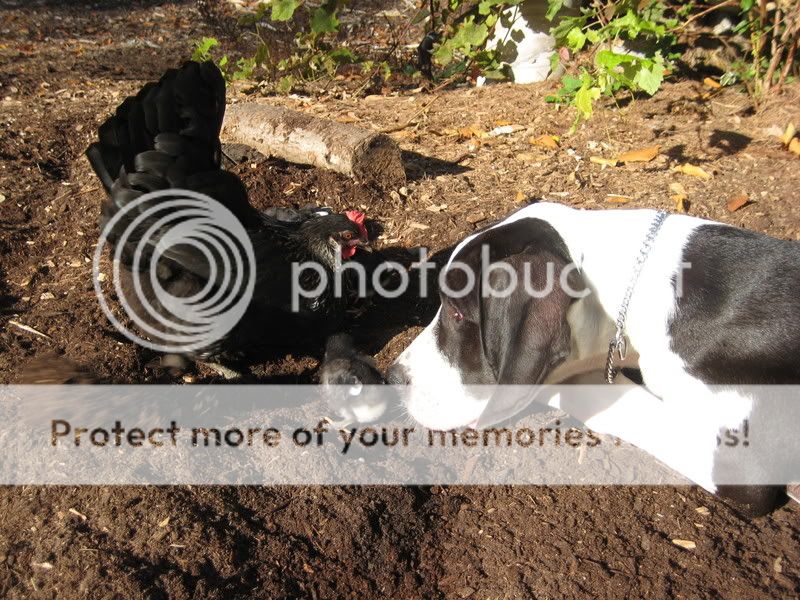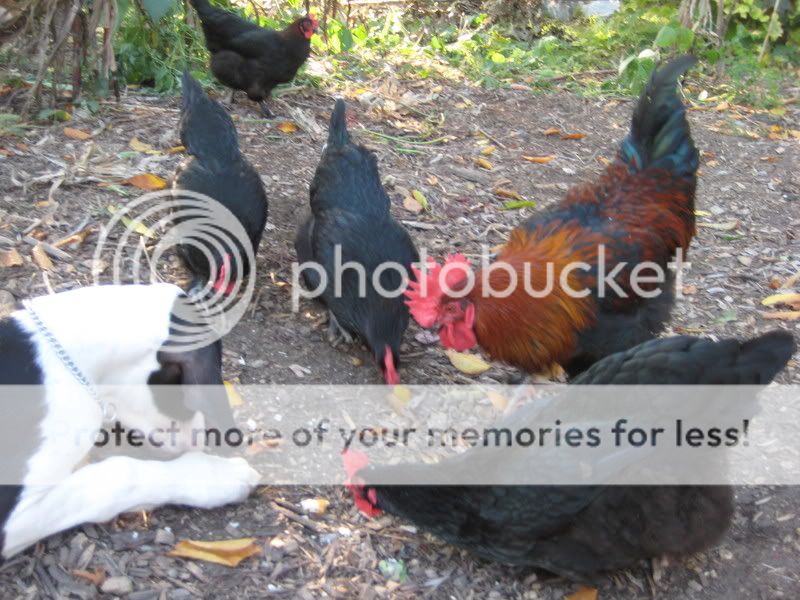In my humble opinion, I think it is less about the breed, (tho that certainly helps) and more about the individual dogs temperment! I have owned MANY dogs over many years, and have always held to the two dogs at a time belief. My older dog teaches my younger dog, and when he passes away, we get a new young dog to continue the line. I have had many breeds, from Goldens, Pit Bulls, Labs, poodles, Rescues and Mutts. Currently, I have a Lab/wolf mix rescue, and a Great Dane. Both are highly protective of not only our chickens, who free range over 8 acres of wooded wet land, but also our three cats! Onyx the lab mix, however is the best 'watch' dog I have ever had the privelage of sharing my home with. He spends all his time outside, watching everything. He has two or three 'perches' where he sits or lays, and surveys. I have to go out and literally drag him in on the worst weather days, and he sulks like I am abusing him, but I can see now how stiff he gets the next day after laying so long in the snow. He is no spring pup anymore.
Onyx learned this behavior from our previous dog, Ty, Who learned it from Parker. Our other dog, the dane, has refused the duty entirely, and only wants to be where we are, and where the heat is. We are going to be looking for a young dog soon, to take up the 'watch' dog duties. Here are a few of the traits I have learned to look for in a young dog that I hope will be a 'watch' dog.
-medium to thick coat of hair, to tolerate, or even enjoy the snow and cold here in NH.
- Quiet temperment. NOT the first puppy to come bounding over! I prefer the ones who sit back and observe me, evaluate me, and then come over when I signal them. I am turned off by the energy of the enthusiastic or dominant puppies, let a household full of kids and crates contain that energy, not my peaceful yard.
-little to no prey drive once they have been told NO. If the young dog wont look away from it when you tell them NO, he is not conceeding that it is yours, he is just waiting for you to walk away from it.
These traits can be found in many breeds, and are not restricted to age groups either, but they act as guidelines for me. The Dane was a poor choice for 'watch' duty, but we kinda knew that at the time, we just really wanted a dane! I think no matter what breed you ultimately choose, a lot of your dogs effectiveness is going to depend on if he learns from you what is expected of him. We have no real fencing, but our dogs know that once the deer crosses into the trees, the chase stops there. I never taught him that.... He just knows that the deer is not welcome near my hostas.
The best advice I have ever learned to follow, is to look at what the other dogs your potential dog is learning from. Are they jumping all over the place? acting nuts? barking? Or are they observing what thier people want of them, taking cues from what they see. Dogs learn from example.
Hope this helps, even if just in the tiniest bit, and Good Luck!








